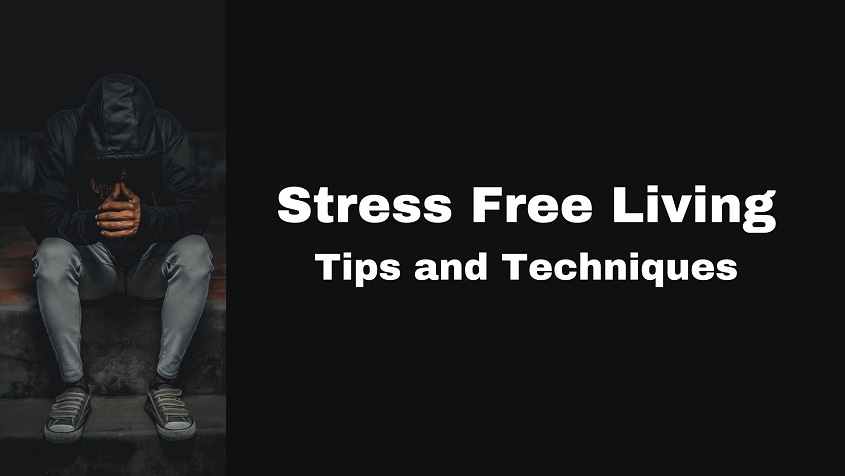Stress Free Living: Tips and Techniques
In a world filled with constant demands and fast-paced lifestyles, pursuing stress-free living has become more important than ever. Chronic stress can have a significant impact on both our physical and mental well-being.
Fortunately, many effective techniques and strategies can help us navigate the challenges of daily life while maintaining a state of balance and calm. This article will explore a range of practical tips and techniques to help you achieve a stress-free lifestyle.
Practice Mindfulness and Meditation
Mindfulness & meditation are powerful tools that help you stay present and centered. Mindfulness involves paying deliberate attention to the present moment without judgment.
Meditation, on the other hand, encourages relaxation and cultivating a clear and focused mind. These techniques can reduce stress, improve emotional regulation, and enhance well-being.
Prioritize Time Management
One of the leading causes of stress is a lack of effective time management. Learning to prioritize tasks, set realistic goals, and create a structured schedule can greatly reduce overwhelming feelings. Break the tasks into smaller, manageable steps, and allocate time for breaks to recharge and reset your focus.
Engage in Regular Physical Activity
Exercise not only benefits your physical health but also plays a a very important role in stress reduction. Regular physical activity, whether a brisk walk, yoga, or a gym workout, releases endorphins – natural mood enhancers. Physical activity helps alleviate tension and promotes a sense of well-being.
Cultivate Healthy Eating Habits
A balanced diet rich in nutrients can positively impact your stress levels. Foods high in vitamins and minerals, like vegetables and fruits, whole grains, and lean proteins, provide your body with the necessary fuel to combat stress. Avoid excessive caffeine and sugary foods, as they can contribute to energy crashes and mood swings.
Create a Supportive Social Network
Building and maintaining strong connections with friends, family, and colleagues can provide a valuable support network during challenging times. Sharing your thoughts & feelings with trusted individuals can provide emotional relief and perspective. Engaging in social activities & spending quality time with your loved ones you can boost your mood and decrease stress.
Practice Deep Breathing and Relaxation Techniques
Deep breathing exercises and relaxation techniques are quick and effective ways to alleviate stress. Try taking slow, deep breaths to activate the body’s relaxation response. Progressive muscle relaxation, where you tense & then release different muscle groups, can also help release physical tension.
Limit Technology and Screen Time
Constant exposure to screens & digital devices can contribute to stress and anxiety. Set boundaries for your technology use, especially before bedtime, to ensure you have time to wind down and disconnect from the digital world. Engaging in offline activities such as reading, hobbies, and outdoor pursuits can help reduce stress.
Get Sufficient Sleep
Adequate sleep is very important for maintaining optimal physical and mental health. Establishing a regular sleep routine will create a comfortable environment and prioritize getting 7-9 hours of quality sleep each night. Proper rest enables you to handle stress more effectively and enhances resilience.
Conclusion
Embracing a stress-free lifestyle requires conscious effort and a commitment to healthy habits. You can effectively manage stress & lead a more balanced and fulfilling life by incorporating mindfulness, time management, physical activity, healthy eating, social connections, relaxation techniques, technology moderation, and sufficient sleep. Remember that stress-free living is a journey, and with consistent practice of these techniques, you can empower yourself to navigate life’s challenges with resilience and grace.

